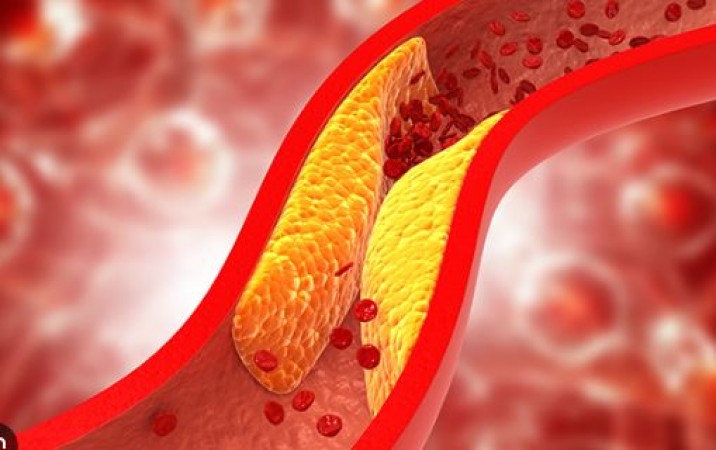
In today’s world, poor lifestyle choices and unhealthy diets are leading to a rise in high cholesterol levels among people. High cholesterol, if left unchecked, can have serious health implications, including heart disease and stroke. Recognizing the symptoms early and seeking timely medical advice can significantly mitigate the risk. This article aims to guide you on how to identify the symptoms of high cholesterol and why it is crucial not to ignore them.
Understanding High Cholesterol
Cholesterol is a fatty substance found in your blood. While your body needs cholesterol to build healthy cells, too much cholesterol can lead to the buildup of plaques in your arteries. This condition, known as atherosclerosis, can reduce or block blood flow, leading to severe health problems.
Common Symptoms of Increased Cholesterol
Chest Pain (Angina)
Description: One of the most common symptoms associated with high cholesterol is chest pain, often referred to as angina. This pain is typically caused by reduced blood flow to the heart muscle.
Why It Happens: High cholesterol leads to the formation of plaques in the arteries, which can obstruct blood flow to the heart, causing chest pain or discomfort.
What to Do: If you experience persistent or severe chest pain, it's crucial to seek medical attention immediately as it can be a sign of heart disease or other serious conditions.
Cold Extremities
Description: Another sign that your cholesterol levels might be elevated is cold hands and feet. This occurs because high cholesterol can affect blood flow.
Why It Happens: Plaques in the arteries can restrict blood flow to your extremities, leading to a sensation of coldness.
What to Do: If you notice that your extremities are frequently cold, especially when there is no apparent reason, consult with a healthcare professional.
Fatigue
Description: Feeling unusually tired or fatigued can also be an indicator of high cholesterol.
Why It Happens: Poor circulation due to blocked arteries can reduce the efficiency of blood flow and oxygen delivery to various parts of the body, resulting in increased fatigue.
What to Do: Persistent fatigue that does not improve with rest should be evaluated by a doctor to determine if high cholesterol or another condition is the cause.
Yellowish Deposits Around the Eyes
Description: Yellowish or waxy deposits around the eyes, known as xanthomas, can be a sign of high cholesterol.
Why It Happens: These deposits are caused by the accumulation of cholesterol in the skin.
What to Do: If you notice these yellowish deposits, it is essential to have your cholesterol levels checked by a healthcare provider.
Health Implications of Ignoring High Cholesterol
Ignoring high cholesterol can have severe consequences for your health. The plaques formed by high cholesterol can lead to:
Heart Disease: Reduced blood flow to the heart muscle can cause angina and increase the risk of heart attacks.
Stroke: Blocked arteries in the brain can result in strokes, which can have long-term and devastating effects.
Peripheral Artery Disease: Restricted blood flow to the limbs can cause pain and mobility issues.
Steps to Take If You Experience Symptoms
Consult a Doctor
Action: Schedule an appointment with your healthcare provider if you experience any of the symptoms mentioned above. Early diagnosis and treatment are key to managing high cholesterol effectively.
Get a Blood Test
Action: A blood test will measure your cholesterol levels, including LDL (bad cholesterol), HDL (good cholesterol), and total cholesterol. This will help determine the appropriate treatment plan.
Lifestyle Modifications
Action: Implementing changes in your diet and lifestyle can help manage cholesterol levels. This includes eating a balanced diet rich in fruits, vegetables, whole grains, and healthy fats, as well as engaging in regular physical activity.
Medication
Action: If lifestyle changes alone are not sufficient, your doctor may prescribe medications to help lower your cholesterol levels.
Recognizing the symptoms of increased cholesterol is crucial for maintaining good health. Ignoring these signs can lead to serious health complications, including heart disease and stroke. If you experience any of the symptoms mentioned, it is essential to consult a healthcare provider promptly. By taking proactive steps, such as getting regular check-ups, making lifestyle changes, and following medical advice, you can effectively manage your cholesterol levels and reduce your risk of serious health issues.
India Issues New Advisory on Mpox as Deadlier Strain Emerges
West Bengal Health Deptt Transfers Key Officials at RG Kar Medical College Amid Protests
Does Eating the Yellow Portion of an Egg Increase Cholesterol?